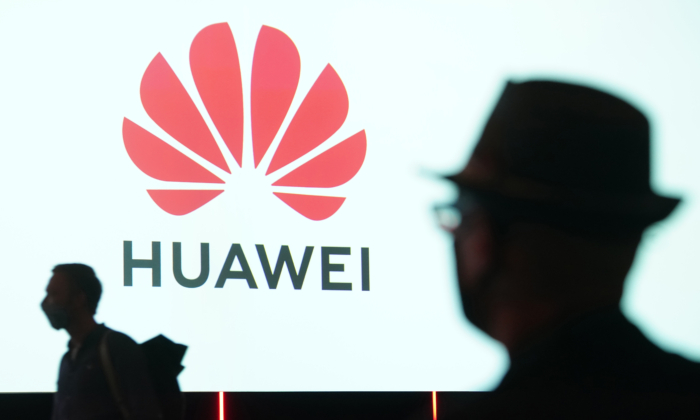
People arrive to attend the Huawei keynote address at a trade fair
opening day in Berlin, Germany, on Sept. 3, 2020. (Sean Gallup/Getty
Images)
Chinese tech giant Huawei paid longtime Democrat lobbyist Tony Podesta $500,000 from July to September to lobby the White House, according to a recent government lobbying disclosure report.
It’s not clear what policies Podesta lobbied on or whom he might have contacted at the White House. According to the disclosure form, it stated that lobbying was for “issues related to telecommunication services and impacted trade issues.” Huawei hired Podesta in July.
The disclosure comes at a time when the Biden administration is under close scrutiny for its policies toward Huawei. More importantly, the revelation came less than a month after the company’s chief financial officer Meng Wanzhou was allowed to return to China after the Department of Justice inked a deal with her.
Huawei was founded by Meng’s father Ren Zhengfei, who was a former Chinese military official. In May 2019, the tech company was put on a trade blacklist by the Trump administration on national security grounds. The trade ban was expanded in August last year, when the company was prevented from acquiring U.S. semiconductors, tiny chips that power everything from cellphones, electric vehicles, to missile systems.
In December 2020, Ajit Pai, who was then-chairman of the Federal Communications Commission (FCC), warned (pdf) about the threats posed by Huawei, saying the company has close ties to the Chinese Communist Party (CCP) and the Chinese intelligence communities, and those ties are at “every level of the company.”
“The concerns about Huawei aren’t just hypothetical: Independent entities have identified numerous security vulnerabilities in Huawei equipment and found it to be less secure than that of other companies—perhaps deliberately so,” Pai stated.
A White House official told CNBC, which first reported on the lobbying disclosure report, that it had nothing to do with Meng’s release, when asked about the lobbying.
“This was a law enforcement matter that was entirely in the Justice Department’s hands—not a policy matter,” the White House official stated.
The official added: “President Biden and this administration believe digital infrastructure equipment made by untrustworthy vendors, like Huawei, pose a threat to the security of the U.S., our allies, and our partners. Export controls against Huawei remain in place.”
Huawei spent nearly $3 million on lobbying in 2019, according to data from OpenSecrets, a Washington-based research group that tracks money in U.S. politics. That year, the money targeted the White House, the Department of Commerce, and the Bureau of Industry and Security, which oversees U.S. export control.
Last year, Huawei spent $470,000 on lobbying. As for this year, the Chinese tech giant has spent over $1.2 million so far.
There have been warnings about Huawei’s lobbying campaign. In August, two members of the Washington-based think tank Heritage Foundation published a commentary in The Daily Signal, highlighting Huawei’s increased lobbying activities, including the hiring of Podesta. One of the two authors is Dustin Carmack, a research fellow in technology policy at the think tank.
“In the coming months, it is likely that powerful and connected lobbyists working on Huawei’s behalf will attempt to woo the Biden administration. The most solemn duty of any presidential administration is to protect American national security,” they wrote.
“As such, the Biden administration must reject these lobbying efforts and hold the line on Huawei.”
His brother, John Podesta, served as White House chief of staff to former U.S. President Bill Clinton, as well as being the chairman of Hillary Clinton’s campaign for her presidential bid in 2016.
Tony Podesta and Huawei did not immediately respond to requests for comment.
No comments:
Post a Comment